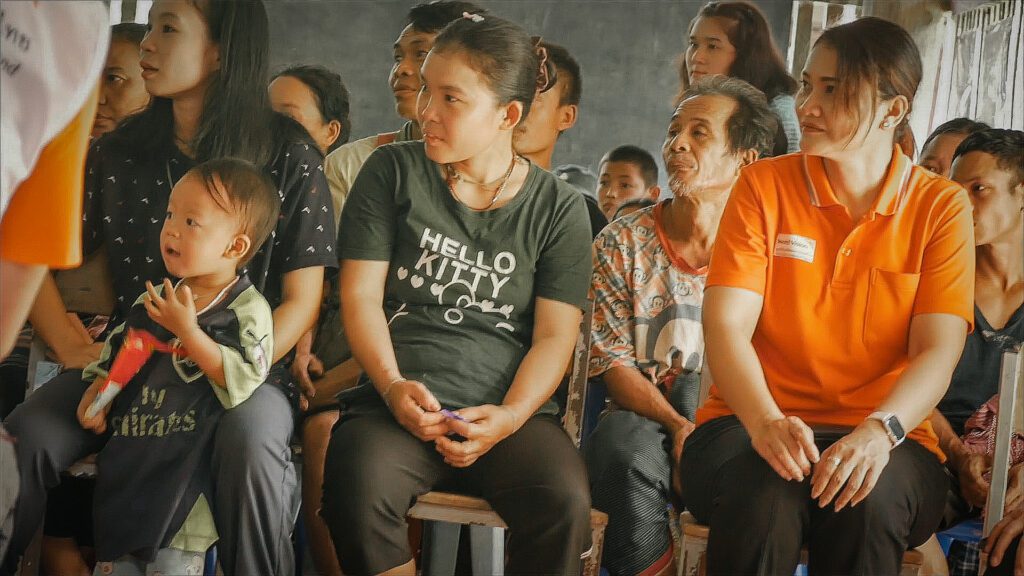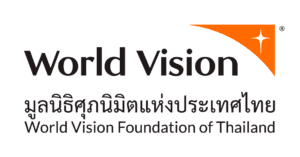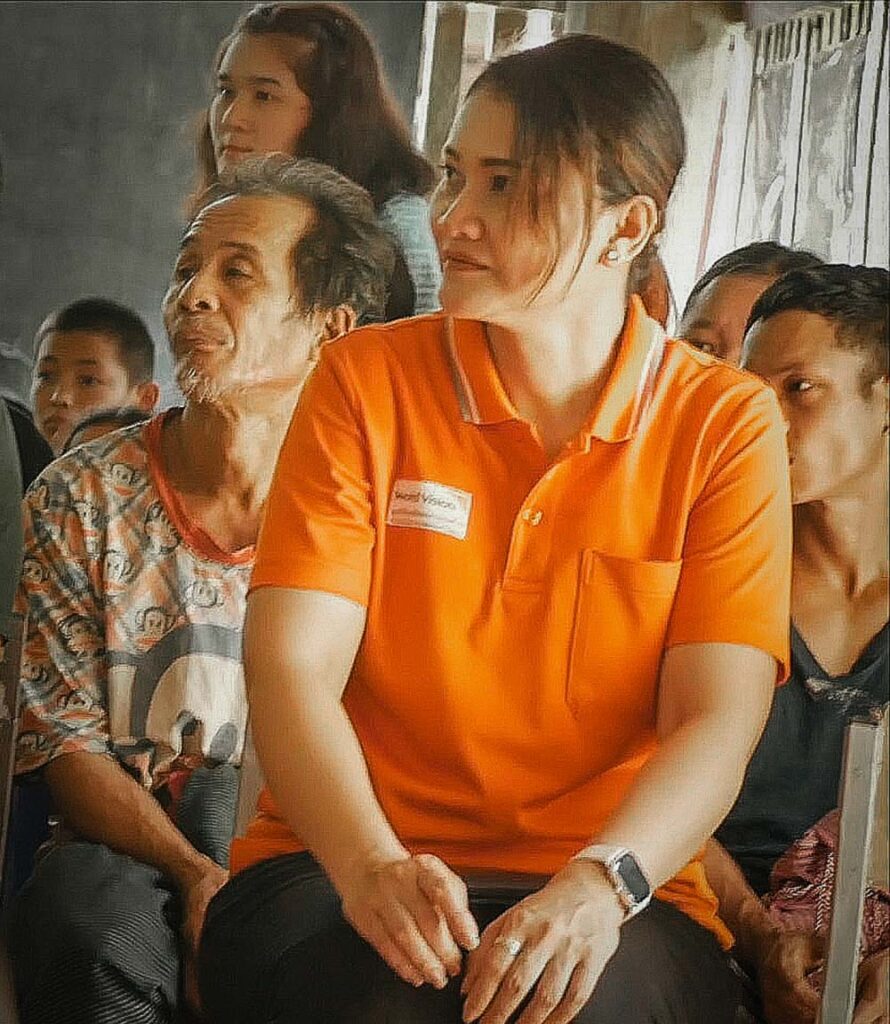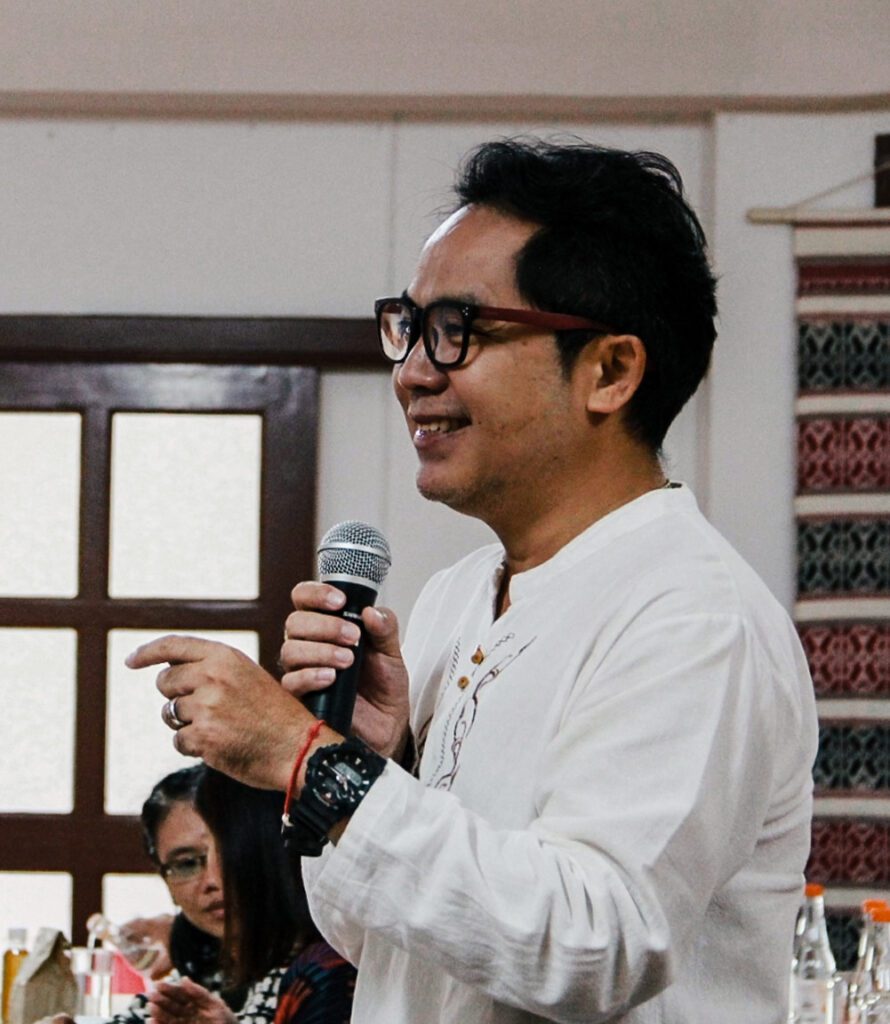
Malaria elimination in Thailand. What is World Vision doing?
It has been a decade since 2014 that World Vision Foundation of Thailand received funding from the Global Fund to help eliminate malaria through the Regional Artemisinin Resistance Initiative (RAI). We have collaborated with national and local agencies from the Department of Disease Control, Ministry of Public Health, domestic and international civil society organisations, such as Raks Thai Foundation, and the civil society sector, targeting migrants and ethnic minority groups in Thailand-Myanmar border provinces.
“The key roles of World Vision Thailand in ending malaria include building knowledge, raising awareness, promoting outbreak prevention and enhancing vigilance. Our strength is our civil society network, officially referred to as migrant health volunteers (MHVs), as our partners in the project implementation, which allows us to reach the target groups without challenges in accessing their communities or language and culture barrier,”
A message from Ms. Jintana Thamsuwan, Project Manager for Migrant Health of World Vision Foundation, a key figure who oversees and drives the mission to eliminate malaria, as well as other major global health problems such as HIV/AIDS and tuberculosis… Today, she will share her work to improve health and rights among migrant and ethnic populations through her work on the project to eliminate drug-resistant malaria in the Greater Mekong Region.
Introducing malaria, the king of tropical diseases
Malaria is a mosquito-borne communicable disease that remains prevalent in the Thailand-Myanmar border provinces, as well as communities located in the forest areas of Thailand and other tropical countries globally. The symptoms include a high temperature without a running nose, chills, headache, sweating, muscle pain, nausea and apatite loss. For those with severe complications, they may have hemolysis, jaundice and kidney failure. In the case of cerebral malaria, patients may have seizures, multiple organ failure and potentially fatal outcomes. Pregnant patients may experience premature birth and low-birth-weight infants, which can be life-threatening for the babies.
According to the World Malaria Report 2023 by the World Health Organization, there were over 249 million cases of malaria worldwide, an increase of 5 million from the previous year. Among children under five years of age with malaria, 76% have severe symptoms and are at risk of death. In Thailand, according to data from the Thailand Malaria Elimination Program, there were 16,532 confirmed cases of malaria in 2023, nearly doubling the number of cases in 2022.
“A budget of trillions of Thai baht is spent globally to fight against malaria, which is one of the three fatal communicable diseases prioritised by the Global Fund. Countries with high prevalence and high risks of outbreaks are supported to take action to address the problem. In Thailand, malaria is most prevalent in border provinces, particularly in forested and mountainous areas along the Thailand-Myanmar border. There are five species of malaria parasites that cause disease in humans. However, the one we prioritise and closely monitor is Plasmodium falciparum (P.f), which is the most fatal malaria that leads to cerebral malaria.Another type of malaria parasite is Plasmodium vivax (P.v). While it causes less severe symptoms than P.f, if left untreated, it can still lead to serious illness. This parasite can hide in the liver for several years, causing the patient to relapse. To determine the type of malaria, a blood test is necessary. The doctor will prescribe medicine based on the type of malaria parasite, the severity of the symptoms and the patient’s age. For most cases, with proper treatment and adherence to medication, malaria can be cured within two weeks.”
Malaria Elimination. What is World Vision doing?
“Thailand has designated malaria as a notifiable infectious disease under the Communicable Disease Act and a disease that requires urgent elimination in accordance with international commitments. In our efforts to end malaria, World Vision Foundation of Thailand collaborates closely with our network of partners, including government agencies, regional public health offices and local NGOs. Our operational provinces vary depending on the disease prevalence. During 2021-2023, World Vision Foundation of Thailand implemented the Regional Artemisinin Initiative 3 Elimination (RAI3E) in two provinces, Mae Hong Son and Tak, targeting school students and migrant and ethnic groups. Our primary role is to prevent, monitor and control diseases in these areas by collaborating with government agencies such as the vector-borne disease control centres, the vector-borne disease control units, and the district public health offices (DPHO). Our key activities include supporting long-lasting insecticidal nets, communicating for behaviour change and providing knowledge on outbreak prevention. We also support people to access malaria test and treatment free of charge, as well as monitor their medication adherence to prevent drug-resistant malaria, which can lead to more severe illness and significantly higher healthcare costs. The program also includes community engagement activities, such as establishing a network of migrant health volunteers (MHVs) and signing MoUs with government agencies, NGOs, educational institutes, entrepreneurs and community leaders to join forces in eliminating malaria. These activities encompass disease prevention, control, diagnosis, treatment, and data management through the Thailand Malaria Elimination Program, an online reporting system operated by health personnel.”
Our strengths in ending malaria
“Our strength is our civil society network, officially referred to as migrant health volunteers (MHVs), as our partners in the project implementation, which allow us to reach the target groups without challenge in accessing their communities We always keep in mind that our operational areas in Mae Hong Son and Tak have a very high portion of migrant and ethnic groups. Partnering with MHVs not only provides us with more manpower, but these MHVs also play a crucial role in enabling us to conduct disease awareness activities in languages that community members can understand. We train our eyes and ears to be vigilant, especially when migrants are going in and out of the area. We would never know if incoming migrants will bring along with them any communicable disease. Partnering with MHVs is a key factor that allows World Vision Foundation of Thailand to address malaria, provide inclusive care and promote good health for all, without discrimination. Currently, we have 128 MHVs who support our malaria-ending initiative in Mae Hong Son and Tak. All of them have received training on how to work as volunteers, communicate health knowledge and sharing information about malaria and other diseases, as well as basic healthcare.”
What is a sustainable solution to malaria elimination?
Chintana also shared her vision for sustainable malaria elimination: “A malaria vaccine is something that everyone working in malaria elimination eagerly desires and hopes will be widely available. The World Health Organization has now approved a malaria vaccine for children. It has been used to reduce the death rate among infected children in Africa. In addition, what we want to see is behaviour change in disease prevention. The vectors are active from dusk to dawn when many people are still out. Students do homework, research their assignments or browse the internet. Family members gather outdoors to catch up. Farmers head to the field from dawn. Therefore, long-lasting insecticidal nets may not be a solution to comprehensive disease prevention. We still need to work harder to raise awareness among children and communities about how to protect themselves from the risk of malaria by giving them knowledge, encouraging them to take actions and promoting the prevention of drug-resistant malaria. Antimalarial drug resistance would lead to significant loss of life and economic costs in terms of disease control, prevention and treatment. For all malaria patients, we emphasise that community and migrant health volunteers should follow up on their medication intake until they are fully recovered. This treatment period is only two weeks, which is very short compared to HIV/AIDS, where patients need to take antiretroviral drugs for life, or TB, where patients need to take medication for at least six months. For patients, we emphasise that they take good care of themselves and reduce the risk of transmission to others.”
Our impact on ending malaria in 2023
From the implementation of the Regional Artemisinin Initiative 3 Elimination (RAI3E) 2023 project in Mae Hong Son and Tak provinces, with support from the Global Fund , through working with government networks, public health agencies and Raks Thai Foundation, there are main activities including providing health education about malaria, communicating awareness campaigns, supporting screening and treatment, promoting and developing a network of foreign public health volunteers, including work on epidemic surveillance.
In the World Malaria Report 2023, Dr Tedros Adhanom Ghebreyesus, Director-General of the World Health Organization, stated that “Climate variability, such as changes in temperature and rainfall, can affect the behavior, survival, and life cycle of Anopheles mosquitoes, the vectors of malaria. In the face of extreme weather events such as heatwaves and severe flooding, the spread of diseases may increase, and climate change also has an indirect impact on malaria.”
“Zero indigenous malaria is possible.” This is the slogan of World Malaria Day 2024 by Ministry of Public Health. Meanwhile, all sectors are working together to achieve the goal of good health for all through malaria elimination. The increasingly severe impacts of climate change pose another challenge that we all must collectively prepare to address…. Zero indigenous malaria is possible in Thailand.




